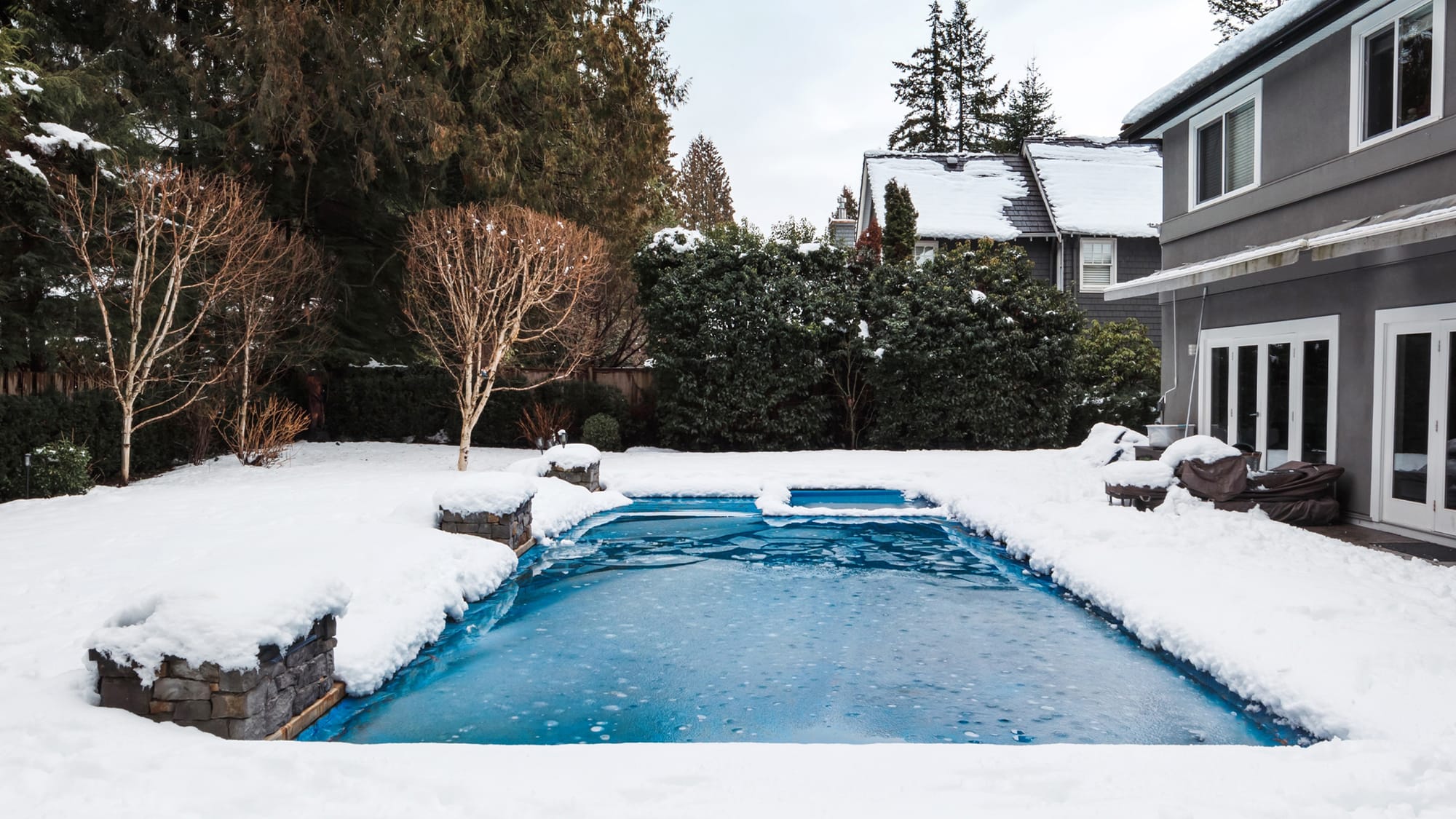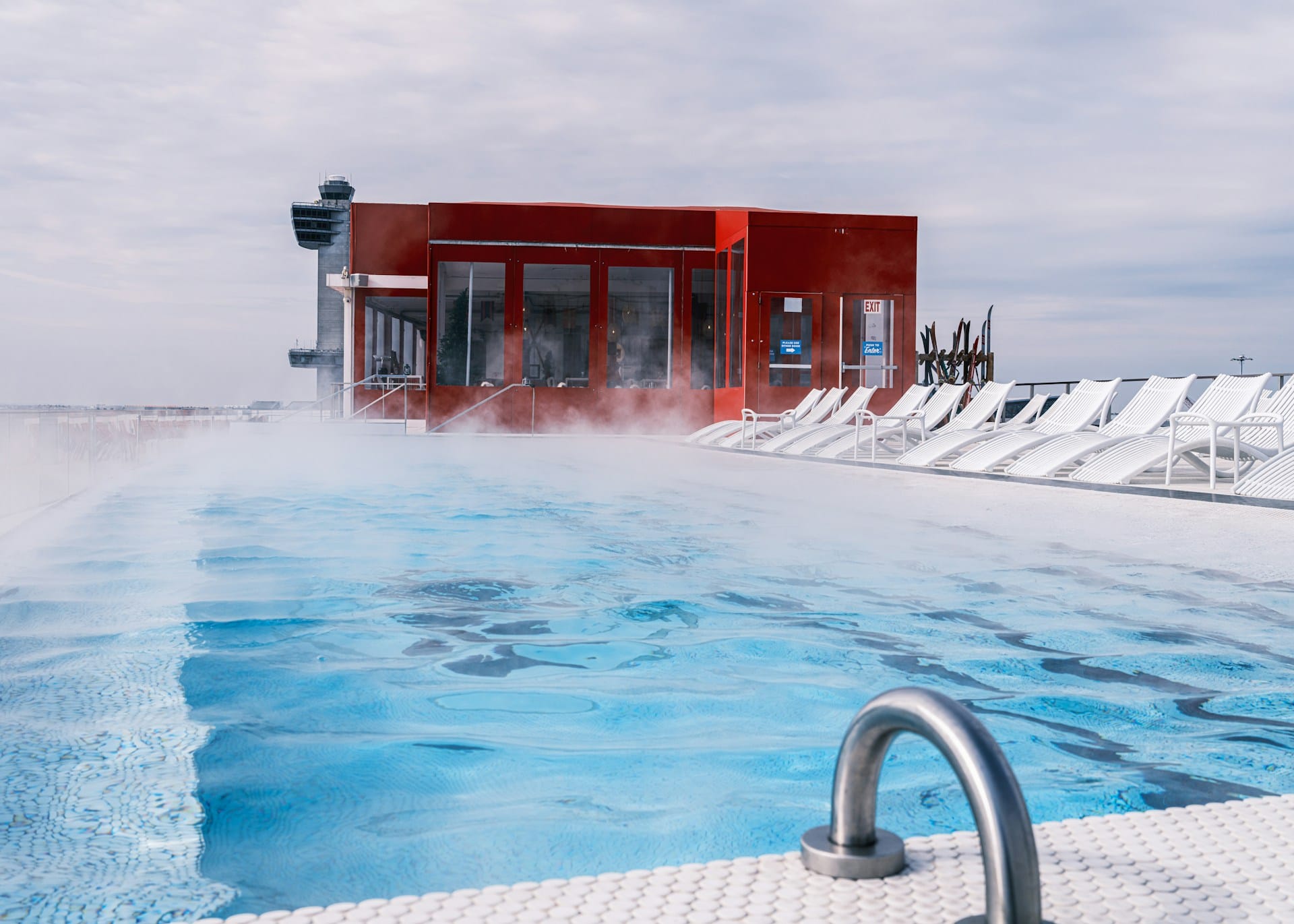Electric Pool Heat Pump Not Working? Expert Troubleshooting & Solutions

Is your pool still cold despite having an electric heat pump? Chances are, your electric pool heat pump may be malfunctioning. Electric heat pumps are quite in demand across Australia, thanks to their effective heating capabilities. However, sometimes, they stop functioning. We know how frustrating it gets, hence we have curated this guide to address common issues and ways to troubleshoot them. We have also mentioned DIY methods, as most of them can be easily resolved at home.
Understanding Your Electric Pool Heat Pump
An electric heat pump draws heat from the air and then transfers it to the pool water. They consist of an outdoor unit, a compressor, a fan, coils, and the big controller or thermostat. These components are studied to trace the source of the problem and act accordingly. When any of these components have problems, the electrical pump fails to warm the pool properly, resulting in cold water.
General Troubleshooting Steps for Electric Pool Heat Pumps
Safety comes first. Before commencing any physical inspection, switch off the power supply to the unit at the breaker.
- Check the Thermostat Settings: The thermostat must be set in 'Heat' mode and to a temperature level higher than that of the water to be heated. Confirm the thermostat display is working without faults.
- Inspect Pool Pump and Filter System: Ensure the pump is on and that water is flowing well through the pump. Low flow significantly impacts heat pump performance. Check for clean skimmer baskets, pump strainer, and filter.
- Check Airflow Around the Outdoor Unit: A good clear area clear all around the unit without blockages from plants, waste or covers is necessary for heat exchange.
- Check for Obvious Damage: Look at the unit for any visual or physical damage to coils, fan blades, or casing.

Troubleshooting Specific Electric Heat Pump Problems
Let’s address specific electric heat pump troubleshooting issues you may be having and tips to resolve them in detail.
Electric Heat Pump Not Heating Effectively
Check first if the thermostat is communicating with the heat pump.
- Dirty Air Filter: The dirtier the air filter, the less the amount of air that can flow through, making heating less efficient. Locate the air filter on the heat pump and wash it thoroughly. In case the filter is badly choked, you may replace it.
- Obstructions Around the Unit: Ensure your electric heat pump’s outdoor unit is kept in an open space without any obstructions around it. Clean and plenty of airflow keep the pump healthy. If your electric heat pump makes some whirring noises, debris or dirt could be the source. Backflush the system to remove particles.
- Low Refrigerant: All refrigerant has been reduced, causing ice to form on the coils or the pool takes more time heating up. This is a prime case of an expert intervention.
- Unit Working in Cold Temperatures: For electric heat pumps, when it gets too cold, pool heating sometimes doesn't happen. If your area experiences temperatures less than zero, it requires a heat pump specifically designed to withstand such low temperatures. Check the manufacturer's specifications for the operating temperature range.
- Unit Undersized: Your electric heat pump could be working fine, but your pool won’t heat up. Well, this means that you don’t have a powerful enough heat pump. Choose the ideal pump according to your pool size.
Electric Heat Pump Won't Turn On
- Check the Circuit Breaker: Locate the circuit breaker, usually in the electrical panel near your pool. Check if the circuit breaker is accidentally turned on. Switch it off. Avoid resetting tripped breakers repeatedly without identifying the issue.
- Thermostat Problems: If the thermostat does not operate correctly, it can send partial signals to the pump, leading to insufficient heating.
- Capacitor Issues: When capacitors fail to work, the heat pump's switching on does not happen. Hire a service technician for the replacement.
- Wiring Problems: Occasionally, the trouble may stem from looseness or damage to the wiring. If that is true, hire a service technician without delay. Avoid DIY work in this case.
- Unit Overheating Protection: Some electric heat pumps have safety features that cause them to shut down if they overheat. If that is the case, allow them to cool down and then restart.
Ice Buildup on Electric Heat Pump
- Normal Frost vs. Excessive Ice: An even frost layer is considered okay in cold weather during defrosting. If excessive ice is present on coils or the heat pump freezes over, it can adversely affect the operation of the pump.
- Defrost Cycle Issues: The defrost cycle operates to inhibit icing, and more often than not, it fails due to either malfunctioning sensors or the timer switch abruptly shutting itself down.
- Low Refrigerant: If large amounts of ice exist, that would be a sign of low refrigerant.
- Poor Airflow: Blocked airflow can cause icing.
Electric Heat Pump Runs Constantly
- Thermostat Settings: Check your pump’s thermostat to see if it operates at the desired temperature. If the settings are off-put, the heat pump will keep running.
- Dirty Air Filter: A dirty filter makes the unit work harder and longer.
- Low Refrigerant: The unit has to run longer to reach the set temperature with insufficient refrigerant.
- Unit Undersized: An undersized unit will struggle to maintain temperature and run continuously.
- Leaky Pool: The heater will run more often if the pool is constantly losing heat due to a leak.
Unusual Noises from Electric Heat Pump
If you hear the following noises, it could indicate issues with the electric heat pump:
- Rattling: Loose panels or debris.
- Buzzing: Electrical issues (potential capacitor or contactor problems).
- Clicking: Relays or start-up components.
- Grinding or Screeching: Potential motor or compressor issues (requires professional attention).
If you persistently hear unusual noises coming from the pump and the pool heater is not working, consult a professional.
When to Call a Professional for Your Electric Heat Pump
You must call a professional if you notice the following problems with your electric heat pump:
- Suspected refrigerant leaks.
- Complex electrical problems.
- Internal component failures, such as those with the compressor and motor.
- Persistent issues after trying basic troubleshooting.
- If you are uncomfortable or unsure about any step.
Conclusion
The pool is not heating up? No worries. With quick and basic electric pool heat pump maintenance, you can troubleshoot common electric heat pump issues at home. Most of these issues are basic and can be resolved easily. However, if the problem doesn’t go away or involves electrical work, seek professional help. Share your thoughts with us, and if you have any questions, drop them in the comments below.

